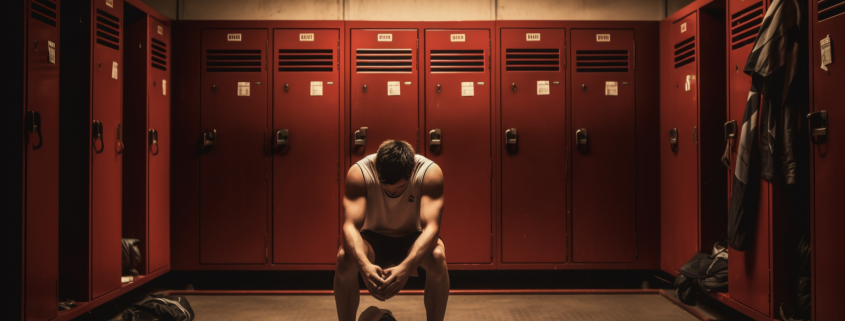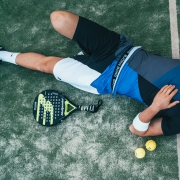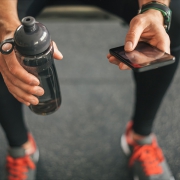How Does Stress Affect Performance in Sports?
Not all stress is created equal — here’s what you need to know.
It’s normal for an athlete to feel stressed before a big game or a competition. If they didn’t feel stressed in the slightest, then one could argue that they were not prepared to give their best performance. This is similar to the inverted U theory and how athletes need to experience the optimal amount of arousal — not too much or too little — to perform at their best [1].
Too little stress/arousal and an athlete feels no sense of urgency or motivation to perform. On the other hand, too much stress can limit the athlete’s ability to focus and may cause them to choke or crumble under intense pressure. It’s all about finding balance!
This blog post will explain more about stress and how it affects performance in sports, beginning with more details on what causes stress, and tips to help you deal with stress in sports.
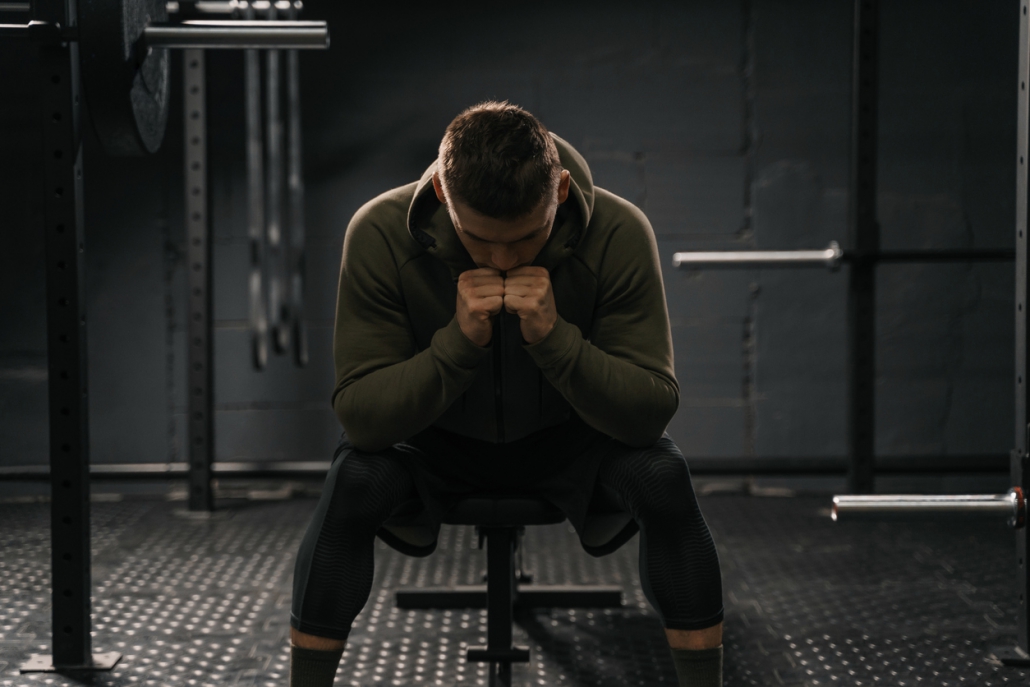
What causes stress in sports?
Everybody experiences stress, but athletes often experience it more than others. But why is this the case? Because it’s a balancing act — athletes need to balance training, competition, family commitments, relationships, and everyday life. And for college athletes (and other Elite athletes), you can throw school and work into the mix for a little extra chaos.
And let’s not forget the intense public scrutiny that comes with being an Elite athlete.
These stressors are compounded by competition, especially during a big game, whether that’s the NBA finals, the PGA tournament, or a football game that decides who gets relegated.
With so many external factors inducing stress in athletes (and coaches), controlling the internal has never been more important.
“If you do things to the limit, and don’t purposely go over that limit, then I think it’s fine to do whatever you want. So long as you enjoy it. That’s what’s important.” – Michael Schumacher.
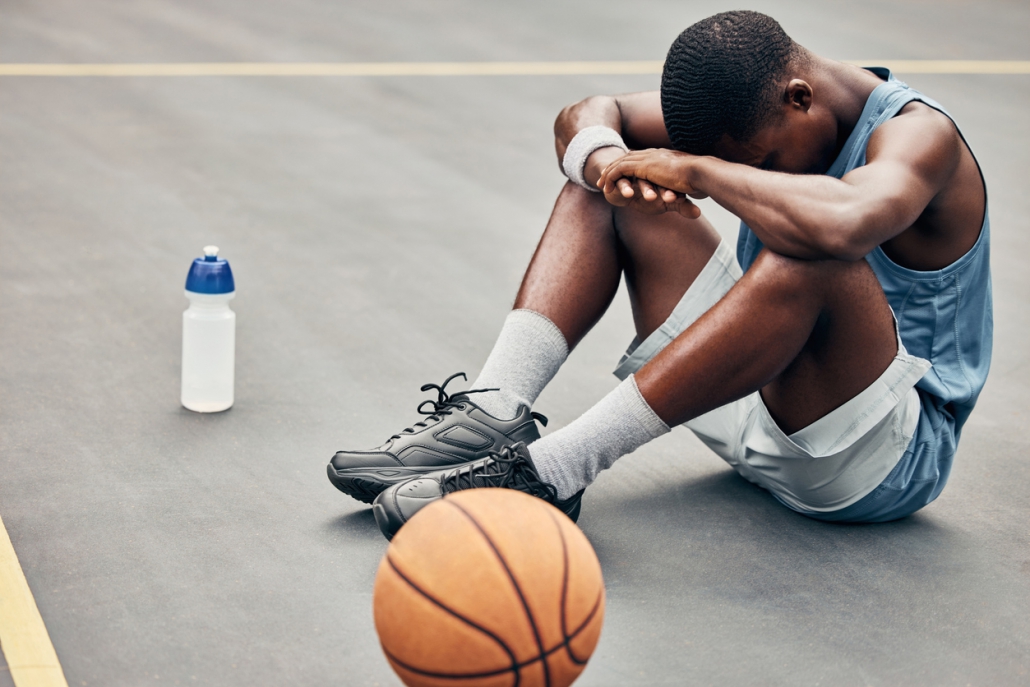
How does stress affect sports performance?
Stress has a direct effect on sports performance. If an athlete feels too much pressure, the stress can get to them and cause them to freeze up, crumble under pressure, or make vital mistakes when it matters most.
It can also cause athletes to involuntarily tense up their muscles, leading to poor form and technique, may lead to cramp, among other issues.
To better demonstrate this intense pressure, let’s use the example of a presentation at work as it’s slightly more relatable for most people… it’s a slight diversion, but I promise it will be worth it…
You’ve been preparing for this presentation for a few weeks, rehearsing what you’re going to say, and running through the slides daily. But when it comes to actually delivering the presentation, you freeze up, you’re unsure of what you’re going to say next, and your mind goes blank.
This is the exact same thing that happens to athletes when they freeze up — but instead of not knowing what to say, they don’t know what to do, what play to make, where to pass, or what the next step is they should take. It’s like a deer caught in headlights. Athletes commonly freeze and choke, making crucial mistakes because of intense pressure.
How to deal with stress in sports
Okay, now that you know what causes stress and how it can directly affect an athlete’s performance, how do you deal with it? You can do numerous things to reduce stress and anxiety, from practicing deep breathing exercises and mindset recovery sessions to creating a pre-performance routine to increase familiarity and reduce stress.
Below you’ll find a list of things you can do to help deal with stress in sports:
- Perform deep breathing exercises
- Create a pre-performance routine
- Practice stressful situations in training
- Focus on getting the basics right (sleep, nutrition, etc.)
- Visualize success
We’ll now break these tips down into more detail.
Perform deep breathing exercises
When people hear the words “deep breathing,” they often think of meditation. And while it can be a form of meditation, deep breathing exercises can also be used in those crucial moments; before taking a free kick, putting the ball in golf, or moments before toeing the line on the track.
Diaphragmatic breathing, also known as “belly breathing,” involves breathing in through the nose and out through the mouth. Studies show that this breathing technique can be useful to improve sustained attention while better regulating stress [2].
Practice and perform this breathing technique to help alleviate stress and anxiety, whether that’s before competition or something as simple as reducing stress before sleep.
Read more: Breathing Exercises for Stress Relief: How to Do 5-10 Breathing.
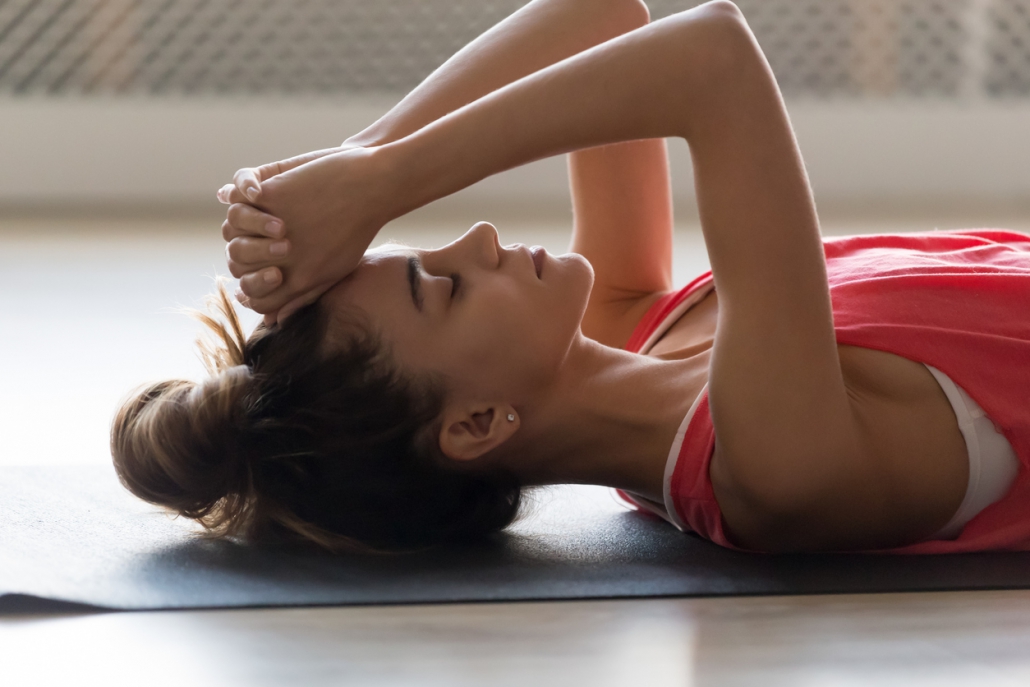
Create a pre-performance routine
The best athletes have a pre-performance routine that they follow like a horse wearing blinders. A set routine increases familiarity, reduces stress, and allows the athlete to get into the right head space and mindset to perform at their best.
You can create your own routine by eliminating activities that cause stress, and replace these with activities that increase focus and concentration. For example, this could include deep breathing exercises, listening to your favorite playlist, mentally rehearsing what the performance will look and feel like, and so on.
It takes time to find a routine that works for you. But begin experimenting by adding/removing activities to best reduce stress and improve your mindset leading up to the performance.
Practice stressful situations in training
A lot of athletes do not experience intense stress until it matters most — the final few minutes of a game, during a penalty shootout, or when they are tied on points on the last hole on the green.
A great way to reduce stress is to practice these stressful situations in training to increase familiarity. For instance, if you know your muscles tense, you feel anxious, and your palms get sweaty when taking penalties, practice this in training to reduce stress when it matters most. Practice goes a long way!
You can also add techniques such as deep breathing and muscle relaxation exercises during these intense moments so you have them in your toolkit — and know how to use them effectively — when you need them most.
Focus on getting the basics right
Although it may seem obvious, even Elite athletes need to get the basics right. We’re talking about sleep, nutrition, and recovery.
If one of these is out of whack, then stress may increase, and performance may decline. Get the basics right and then implement other techniques and mental skills, such as visualization — more on this below.

Visualize success
Visualization is a powerful mental skill that many elite athletes use. It involves picturing yourself performing successful skill performance, whether that’s scoring a goal, passing the ball to a teammate down the wing, or saving a goal.
Athletes use visualization to improve confidence, reduce stress and anxiety, and calm their nerves.
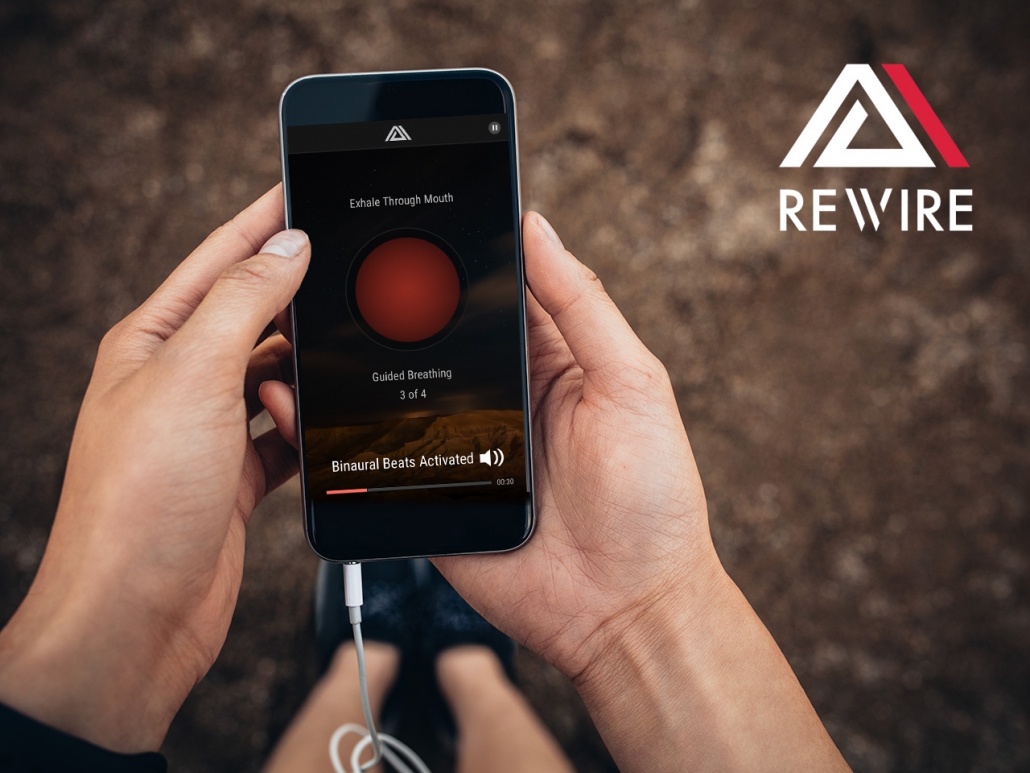
Use Rewire to reduce stress and improve performance
Some level of stress is needed to improve performance. But too much stress — and not knowing how to control it — can cause an athlete to freeze, choke, or make vital mistakes when it matters most.
Rewire can help athletes reduce stress by tracking their physical, cognitive, and emotional states. Athletes gain access to science-backed protocols from sports psychology, such as guided breathing, pre-workout priming, visualization, and sleep protocols to improve performance and reduce stress and anxiety.
“I have been using the app for a few months. It has helped me set the proper mindset before workouts, disconnect before bedtime, and gauge my mental readiness on a daily basis.” – Matt Hanson (Professional Triathlete and Coach).
Find out how Rewire can help you


